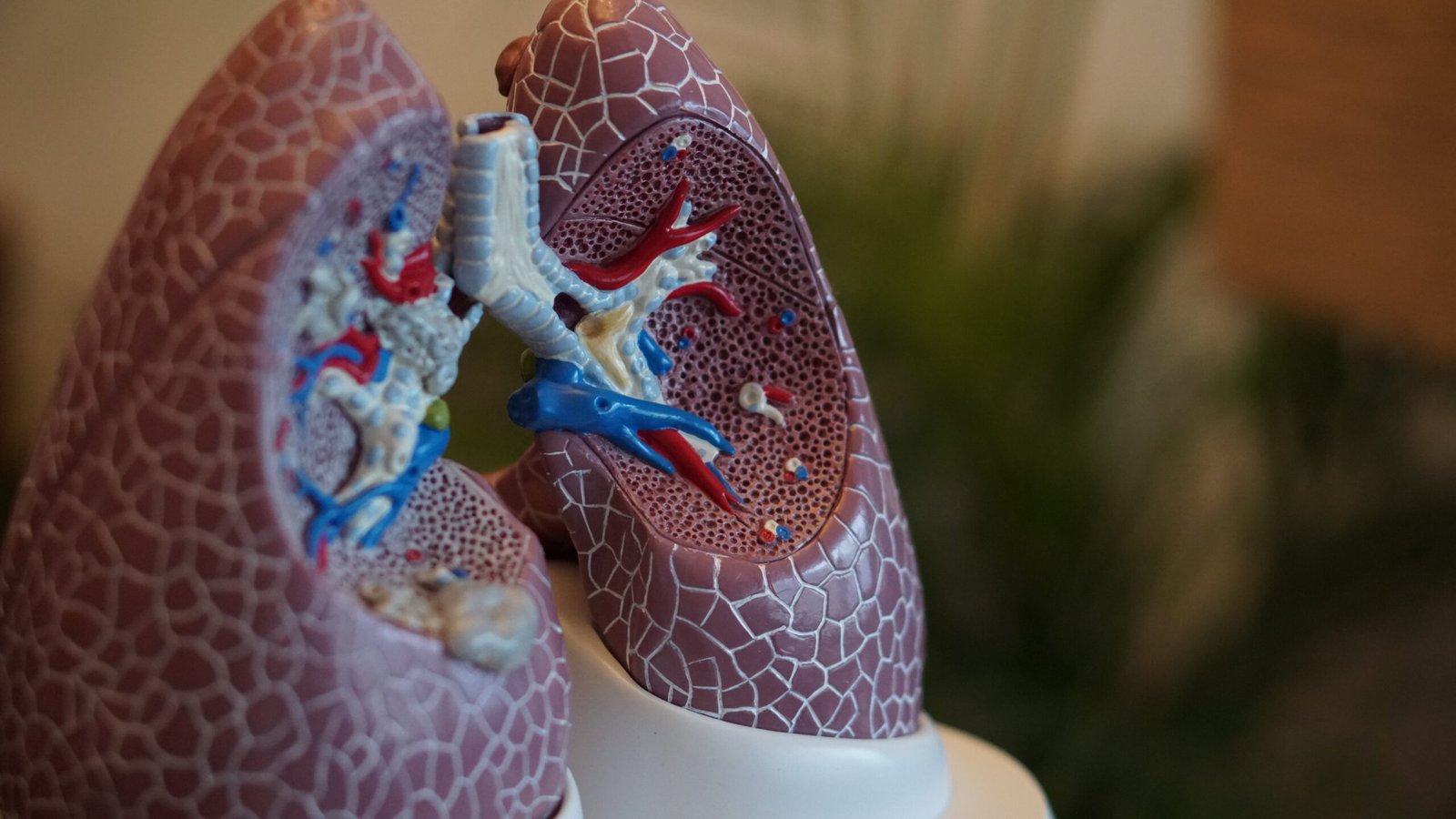Imagine embarking on a journey where you get to play a crucial role in the world of healthcare, all while satisfying your passion for science and technology. That’s exactly what awaits you in the captivating career path of a Medical Technologist. As a medical professional, you’ll have the opportunity to dive deep into the fascinating world of laboratory diagnostics, conducting tests, analyzing data, and contributing to the accurate diagnosis and treatment of patients. With a growing demand for skilled professionals in the United States, this career offers endless possibilities and a promising future for those who choose to explore it.

This image is property of images.unsplash.com.
Education and Training
Bachelor’s Degree
To become a medical technologist, the first step is to earn a Bachelor’s degree in medical technology or a related field. This undergraduate program typically takes four years to complete and provides a solid foundation in the sciences, including courses in chemistry, biology, and microbiology. Additionally, students can expect to take classes specific to the field of medical technology, such as clinical chemistry, medical microbiology, and hematology.
Certification and Licensing
After completing a Bachelor’s degree, aspiring medical technologists must obtain certification to practice in the field. The most widely recognized certification is the Medical Laboratory Scientist (MLS) certification, which is offered by the American Society for Clinical Pathology (ASCP). This certification requires passing a comprehensive exam that assesses knowledge and skills in all areas of medical technology. Some states may also require medical technologists to obtain a license to practice, which may have additional requirements beyond certification.
Continuing Education
Continuing education is crucial in the field of medical technology to stay updated with the latest advancements and developments. Medical technologists can choose from a variety of continuing education options, such as attending workshops, conferences, or symposiums, or pursuing advanced degrees or certifications. These opportunities allow medical technologists to expand their knowledge and skills, stay current with new technologies and techniques, and enhance their career prospects.
Job Responsibilities
As a medical technologist, you will have a range of responsibilities that are essential for the accurate diagnosis and treatment of patients. Some of these key responsibilities include:
Conducting Laboratory Tests
One of the primary responsibilities of a medical technologist is to perform laboratory tests on patient samples. This includes collecting specimens, such as blood or urine, and analyzing them using specialized equipment and techniques. Medical technologists are skilled in performing a wide range of tests, including chemistry panels, blood counts, urinalysis, and microbiological cultures, among others.
Analyzing Results
After conducting laboratory tests, medical technologists are responsible for analyzing the results and interpreting the findings. They must have a keen attention to detail to ensure the accuracy of their analysis and be able to recognize any abnormalities or patterns that may indicate disease or other health conditions. Medical technologists often collaborate with physicians and other healthcare professionals to provide accurate and timely diagnostic information.
Maintaining Laboratory Equipment
Medical technologists are also responsible for the maintenance and calibration of laboratory equipment. This includes routine cleaning, troubleshooting, and ensuring proper functioning of instruments, such as analyzers, microscopes, and centrifuges. Regular maintenance is crucial to ensure accurate and reliable test results and to prevent equipment breakdowns that may disrupt patient care.
Developing and Implementing Quality Control Procedures
Quality control is a vital aspect of medical technology. Medical technologists are responsible for developing and implementing quality control procedures to ensure the accuracy and reliability of laboratory tests. This involves regularly monitoring and validating the performance of laboratory equipment, verifying the accuracy of test results, and participating in proficiency testing programs. Strict adherence to quality control procedures helps to maintain the highest standards of patient care and safety.

This image is property of images.unsplash.com.
Work Environment
Medical technologists work in a variety of healthcare settings, including:
Hospitals and Clinics
Many medical technologists are employed by hospitals and clinics, where they play a vital role in diagnosing and treating patients. In these settings, medical technologists work closely with physicians and other healthcare professionals to provide accurate and timely test results. They may work in various departments, such as hematology, microbiology, or clinical chemistry, depending on their area of specialization.
Diagnostic Laboratories
Diagnostic laboratories are another common work environment for medical technologists. These laboratories specialize in conducting various tests, such as genetic testing, cytology, or histology, to aid in diagnosing diseases and conditions. Medical technologists in diagnostic laboratories perform a wide range of tests and work with specialized equipment to produce accurate results.
Pharmaceutical and Biotechnology Companies
Medical technologists can also find employment in pharmaceutical and biotechnology companies. In these settings, they contribute to research and development efforts, conducting tests to evaluate the safety and efficacy of new drugs or medical devices. Their expertise is essential for ensuring the quality and accuracy of data generated during the drug development process.
Research and Development Institutions
Research and development institutions, such as universities or government agencies, offer opportunities for medical technologists to contribute to scientific advancements. In these settings, medical technologists may be involved in conducting research studies, developing new laboratory techniques, or collaborating with other researchers to further our understanding of diseases and improve patient care.
Skills and Qualifications
To succeed as a medical technologist, certain skills and qualifications are necessary. These include:
Attention to Detail
Attention to detail is crucial in medical technology. Medical technologists must be meticulous and focused in their work to ensure accurate and reliable test results. They must carefully follow laboratory protocols, accurately record data, and recognize even the smallest deviations from normal results.
Analytical and Problem-Solving Skills
Medical technologists must possess strong analytical and problem-solving skills. They need to analyze test results, interpret complex data, and draw meaningful conclusions. Additionally, they must be able to troubleshoot equipment malfunctions and identify potential issues that may affect the accuracy of test results.
Communication and Interpersonal Skills
Effective communication and interpersonal skills are essential for medical technologists. They must be able to communicate clearly and effectively with physicians, nurses, and other healthcare professionals to provide accurate and timely test results. Additionally, they must be able to convey complex scientific information to individuals who may have limited medical knowledge.
Technical Skills
Medical technologists must have a strong foundation in technical skills related to laboratory testing and equipment operation. They need to be proficient in using various instruments and technologies, as well as software programs for data analysis and interpretation. Additionally, they must stay updated with the latest advancements in laboratory techniques and technologies through continuing education.

This image is property of images.unsplash.com.
Career Advancement
As a medical technologist, there are various opportunities for career advancement, including:
Specialization
Medical technologists can choose to specialize in a specific area of laboratory testing, such as clinical chemistry, microbiology, or histology. Specialization allows for a deeper understanding of a particular field and can open up opportunities for leadership roles or research positions within that specialty.
Management Roles
Experienced medical technologists may pursue management positions, such as laboratory supervisor or laboratory manager. In these roles, they are responsible for overseeing the daily operations of the laboratory, managing staff, ensuring compliance with regulations and quality standards, and implementing new laboratory technologies or procedures.
Research and Teaching Opportunities
For those interested in furthering scientific knowledge or educating the next generation of medical technologists, research and teaching opportunities are available. Medical technologists can engage in research studies to contribute to scientific advancements and improve patient care. Additionally, they can become instructors or professors in medical technology programs, sharing their knowledge and expertise with aspiring professionals.
Job Outlook
The job outlook for medical technologists is promising due to several factors:
Growing Demand for Medical Technologists
With advancements in medical technology and an aging population, there is an increasing demand for skilled medical technologists. As new tests and technologies are developed, medical technologists are needed to perform these tests and analyze the results. The Bureau of Labor Statistics projects a 7% growth in employment for medical and clinical laboratory technologists from 2019 to 2029, faster than the average for all occupations.
Advancements in Technology
Technological advancements continue to shape the field of medical technology. New instruments, automation, and data analysis tools allow medical technologists to perform tests more efficiently and accurately. These advancements not only improve patient care but also provide opportunities for career growth and specialization in emerging areas of medical technology.
Retirement of Current Workforce
Another factor contributing to the job outlook for medical technologists is the retirement of the current workforce. Many experienced medical technologists will be reaching retirement age in the coming years, creating a need for qualified individuals to fill these vacancies. This presents opportunities for recent graduates and those considering a career change to enter the field.
Salary and Benefits
The average salary of medical technologists can vary depending on factors such as experience, location, and level of specialization. According to the Bureau of Labor Statistics, the median annual wage for medical and clinical laboratory technologists was $54,180 in May 2020.
Benefits and perks for medical technologists often include health insurance, retirement plans, paid time off, and professional development opportunities. Some employers may also offer additional benefits, such as tuition reimbursement or flexible work schedules.
Work-Life Balance
Medical technologists often enjoy a favorable work-life balance due to the nature of their work. Here are some factors that contribute to this balance:
Flexible Work Schedules
Many healthcare facilities, such as hospitals and diagnostic laboratories, operate 24/7. This allows medical technologists to choose from a variety of work schedules, including daytime, evening, or overnight shifts. This flexibility allows for better work-life integration and the ability to accommodate personal obligations or preferences.
Work-Life Integration
Work-life integration is another aspect that contributes to a balanced lifestyle for medical technologists. With advances in technology, some laboratory tests can be performed remotely or at home, allowing medical technologists to have more control over when and where they work. This flexibility can be beneficial for individuals seeking a career that allows them to balance their personal and professional lives.
Challenges and Rewards
Like any career, being a medical technologist comes with its own set of challenges and rewards:
Handling High-Stress Situations
Working in a healthcare setting can be demanding and stressful, especially when dealing with critical or time-sensitive patient cases. Medical technologists must remain composed under pressure and handle high-stress situations effectively. The ability to prioritize tasks, communicate with the medical team, and maintain accuracy in test results is crucial in these circumstances.
Making a Difference in Patient Care
Despite the challenges, being a medical technologist can be highly rewarding. Medical technologists play a vital role in the diagnosis and treatment of patients, often working behind the scenes to provide healthcare professionals with accurate and reliable test results. This contribution to patient care can be fulfilling and offer a sense of purpose and satisfaction in the profession.
Conclusion
Becoming a medical technologist offers a fulfilling career path for individuals interested in the intersection of science, healthcare, and technology. With a solid educational foundation, certification, and ongoing professional development, medical technologists can enjoy a diverse range of job responsibilities, work in various healthcare settings, and have opportunities for career advancement. The growing demand for medical technologists, advancements in technology, and the opportunity to make a difference in patient care make this field an attractive choice for those considering a career in the healthcare industry.